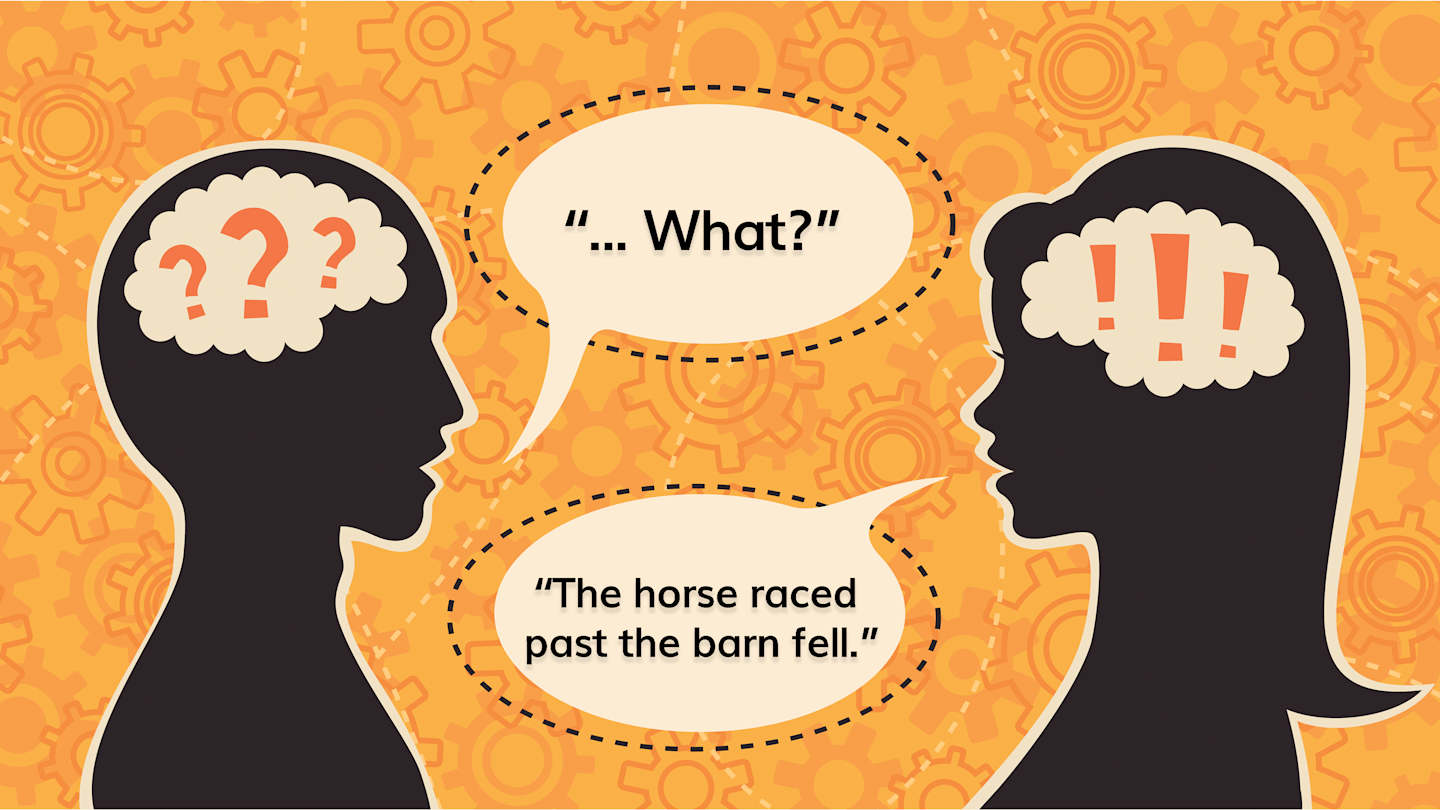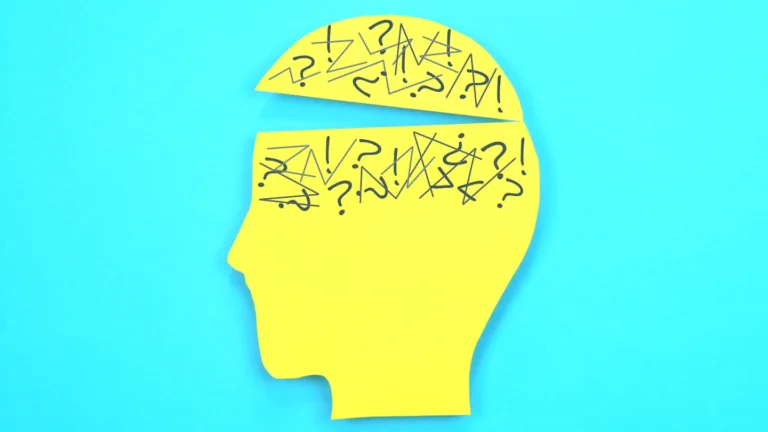Have you ever stumbled across a sentence that seemed perfectly reasonable at first, only to find yourself completely baffled As You Read on? That’s the magic (or perhaps mischief) of Sentence Illusions. These linguistic tricks play with our expectations and understanding of grammar, leading us down winding paths of confusion before ultimately revealing their clever design.
Think of it like a word puzzle where the pieces fit together Seemingly Correctly, but the finished picture is completely unexpected. Sometimes, these illusions stem from our brains trying to make sense of incomplete information, filling in gaps with assumptions that turn out to be wildly off. Other times, they exploit the subtle nuances of Language Itself, creating ambiguities that can leave us Scratching Our Heads.
These linguistic puzzles aren’T Just Fun Brain Teasers; they offer a fascinating glimpse into How Our Minds Process Language. By understanding these illusions, we gain a deeper appreciation for the complexities of communication and the remarkable ways our brains strive to make sense of the world around us.
Garden Path Sentences: A Grammatical Journey Gone Wrong
Imagine reading a sentence that initially Seems Perfectly Clear, only to realize halfway through that Something Feels Off. Your brain has taken a wrong turn on a grammatical path, leading you down a confusing and Unexpected Route. That’s the essence of a garden Path Sentence – a linguistic labyrinth designed to mislead Your Understanding. These sentences often start innocently enough, with a grammatical structure that appears familiar.
But then, a twist! An unexpected word or phrase throws Off Your Expectations, forcing your brain to backtrack and re-evaluate the entire sentence. It’s like trying to navigate a maze where the paths keep shifting Beneath Your Feet. Take, for example, the classic sentence: “The horse raced past the barn fell.” Initially, you might assume that the horse raced past the barn and then fell. But the reality is that the “fell” actually describes a separate action – perhaps the barn itself fell.
This type of illusion highlights how easily our brains can be tricked by the subtle nuances of language. We tend to rely on initial interpretations and expectations, often failing to notice the fine print that could lead us astray. Garden path sentences are a reminder that even when words seem clear, there’s always room for ambiguity and Unexpected Turns.
Misnegation: When Negatives Turn Positive
Our language is full of little traps waiting to trip us up, and misnegation is one such sneaky trickster. It involves the use of negative words in a way that leads to a positive interpretation, flipping our understanding on its head. Think of it like walking down a street where all the “No Parking” Signs Actually Mean “Park Here!” It’s a linguistic paradox that can leave you scratching your head and Wondering If you’ve stumbled into a mad scientist’s Wordplay Experiment.
Consider this example: “They had only just moved in; their boxes lay on the kitchen floor, Still Unpacked.” At first glance, it seems like the family is struggling to settle in, overwhelmed by unpacking. However, the use of “only just” and “still” Actually Implies progress! They’Ve Only Recently Arrived, So It’s natural that things are still unpacking.
Misnegation often arises from our tendency to focus on the immediate context rather than the full sentence structure. It reminds us that language is far more complex than a simple Dictionary Definition, and meaning can be easily shifted depending on subtle word choices and Grammatical Nuances.
 Mountain Taller Than Everest: Mauna Keas Underwater Claim to Fame
Mountain Taller Than Everest: Mauna Keas Underwater Claim to FameThe Comparative Illusion: Tricking Comparisons
Comparisons are a fundamental part of language, helping us understand relationships and make Judgments About Things. But sometimes, comparisons can take a wild turn, Leading To Nonsensical Conclusions. This is where the comparative illusion Comes Into Play, tricking our brains with structurally flawed comparisons that seem plausible at first glance.
Imagine hearing someone say: “More people have been to Russia than I have.” At first, this statement might seem perfectly reasonable. However, Upon Closer Inspection, it reveals a logical inconsistency. The comparison between “more people” and “I” is fundamentally flawed. It’s like comparing apples and oranges—the two entities are simply not comparable in the same way. Our brains try to make sense of this illogical comparison, leading us down a path of confusion.
These illusions highlight how our understanding of language relies heavily on context and logical structure. When those structures break down, our brains struggle to grasp the Intended Meaning, resulting in a bewildering experience. The comparative illusion serves as a reminder that even seemingly straightforward comparisons can be surprisingly deceptive.
The Licensing Illusion: Navigating Negative Structures
Navigating the world of negatives can be a tricky business, as our brains often struggle to keep track of double negatives and Embedded Negations. This is where the licensing illusion Comes Into Play, showcasing how certain grammatical structures require specific “licenses” – Preceding Negatives – for their meaning to make sense. It’s like trying to unlock a Secret Door; without the right key (a preceding negative), you’re left outside wondering what lies beyond.
Consider this example: “The authors that no critics recommended have received any praise for a best-Selling Book.” At first glance, it seems as though the authors Received No Praise Whatsoever. However, the structure of the sentence is Grammatically Flawed. To make sense, we need a preceding negative to license the use of “no” with “recommended.” In essence, It Should Read: “The authors that no Critics Recommended Have Received any praise…” Now the meaning becomes clear – the authors haven’t received much praise despite being unlicensed by critics.
This illusion highlights the intricate rules governing negative structures in language. It reminds us that sometimes, seemingly simple grammatical choices can drastically alter the intended meaning.
Missing Verbs and Illusions of Meaning
Our brains are wired to fill in the blanks, even when it comes to missing information in sentences. This tendency can lead to intriguing illusions of meaning, where we construct complete narratives based on incomplete data. But sometimes, this inherent desire to make sense of things can backfire spectacularly, resulting in misunderstandings and unexpected twists.
Consider this example: “The Cat sat on the mat.” Now imagine a version with a Missing Verb: “The Cat _ on the mat.” Our brains, eager to complete the sentence, Might Instinctively Supply Verbs Like “sat,” “lay,” or even “jumped.” However, without that crucial verb, the meaning remains ambiguous. We’re left wondering about the cat’s actions and the overall context of the situation. This is where Missing Verbs create illusions of meaning – our brains attempt to fill in the gaps based on assumptions and context, but without the core verb, a complete understanding eludes us.
These illusions demonstrate the intricate dance between language and perception. While our brains are remarkably adept at constructing meaning from limited information, the absence of key elements like verbs can lead to fascinating ambiguities and unexpected interpretations.
More for curious minds
Unlock extra content and exclusive deals tailored to your interests.










